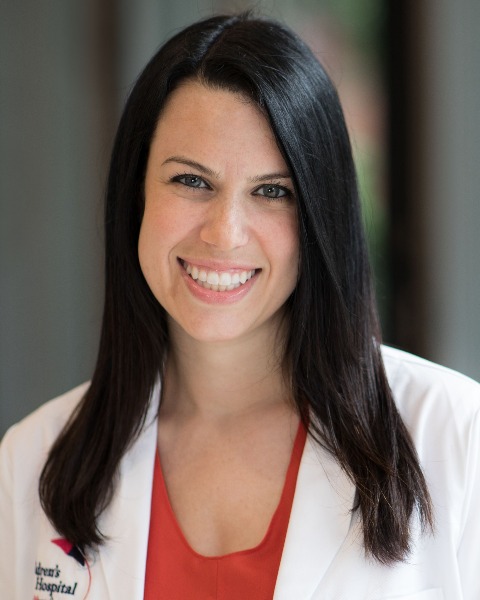General Pediatrics
Session: General Pediatrics 2
246 - Just Ask! The Primary Care Pediatrician’s Role in Adolescent Disclosure of Gender Identity and Sexual Orientation
Friday, May 3, 2024
5:15 PM - 7:15 PM ET
Poster Number: 246
Publication Number: 246.597
Publication Number: 246.597

Lauren Roth, MD (she/her/hers)
Assistant Professor of Pediatrics
The Children's Hospital at Montefiore
Bronx, New York, United States
Presenting Author(s)
Background: Lesbian, gay, bisexual, transgender, queer/questioning (LGBTQ+) youth have worse health outcomes, often due to stigma, discrimination, and barriers to care. For primary care providers (PCPs) to serve as a safe space for LGBTQ+ youth, patients must feel comfortable disclosing their sexual orientation and gender identity (SOGI). Existing data on disclosure primarily focuses on LGBTQ+-centered spaces and does not capture the extent to which PCPs ask the general population about SOGI during health care maintenance (HCM) visits.
Objective: We aimed to (1) determine if PCPs asking about SOGI is associated with adolescent disclosure, (2) assess patient perspectives on barriers and facilitators of disclosure, and (3) identify provider-initiated actions associated with disclosure.
Design/Methods: We anonymously surveyed adolescents ages 13-17 from June to September 2023 at a large, urban, pediatric primary care practice in a Federally-Qualified Health Center. Patients were recruited in the waiting room prior to their HCM visit and sent a Qualtrics® survey to their personal email. Questions included demographics, whether their PCP asked about SOGI, previous disclosure, barriers and facilitators, PCP traits (perceived age, race/ethnicity, SOGI), and an open-ended question.
Results: Of 136 patients, 77 surveys (56.7%) were completed. In aggregate, 24 (31.2%) participants identify as LGBTQ+ [Table 1]. Most reported their PCP asked about pronouns (68.8%), GI (76.6%), and SO (85.7%) at their HCM visit. Most have disclosed their GI (74.0%) and SO (84.2%) to their PCP. Patients who were asked were significantly more likely to disclose their GI (86% vs. 15%, p < 0.001) and SO (98% vs. 22%, p< 0.001) [Fig 1]. The top facilitators for disclosure were their doctor directly asking (59.6% for GI; 43.8% for SO), their doctor speaking to them in private (42.1% for GI; 21.9% SO) and being confident their doctor would respond positively (38.6% for GI; 15.6% SO). For those who did not disclose, the primary barrier was not being asked (73.3% for GI; 66.7% SO). Qualitative themes included development of trust and bonding through these discussions, ensuring the PCP makes the patient feels comfortable, the developmental experience of SOGI, asking patients how they feel about their SOGI and other related questions.
Conclusion(s): PCPs asking their patients about SOGI can increase disclosure, which in turn can improve trust and increase the likelihood that LGBTQ+ youth receive appropriate care. Future efforts will aim to increase PCP training on inclusive and affirming history-taking to facilitate disclosure and improve care.
.jpg)
.png)
